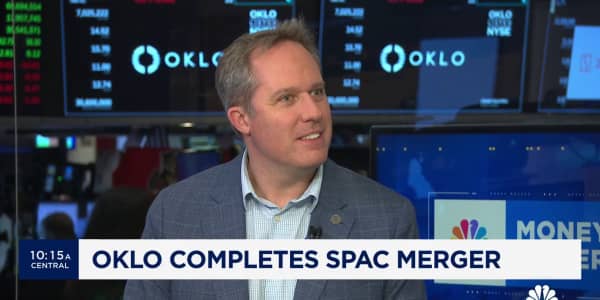
The unicorn club is filling up, and it's causing unease among investors.
The number of privately held tech start-ups valued at $1 billion or more now tops 140. But there's a widespread concern on Wall Street that because this new breed of start-ups isn't profitable and can't live up to the super-high valuations, companies are staying private a lot longer.
This year has seen the lowest number of tech companies come public since 2009. According to Renaissance Capital, there have been just 22 tech IPOs in 2015 thus far, compared to 55 in 2014.
When Fidelity and BlackRock marked down their investments in companies like Dropbox and Snapchat in November, alarm bells were rung. Has the bubble burst?
Read MoreThese start-ups are still raising tons of money
According to PrivCo, a company that provides financial data on major privately held companies, these tech names are reluctant to go public because of the shaky IPO market. The companies that have gone public end up facing little flourish, and have found their worth on Wall Street is often lower than in the private market.
For example, Square, the mobile payments processing firm, opened at $11.20 and popped on its first day of trading. But it's worth noting that it had priced its IPO about $2 below its expected range. Other recent tech IPOs including Box, Etsy and GrubHub have gotten hammered after flashy Wall Street debuts.
This in turn has given life to the phenomenon known as the "private IPO" — a large, late-stage funding round providing the capital necessary without all the drawbacks of going public.
This private IPO phenomenon has it so the capital that used to go into an IPO now goes into later stage pre-IPO financings. These companies — think Uber, Postmate or Stripe — have their valuations set by venture capitalists.
Read MoreGuess where a big crop of unicorns is coming from
But not all investors believe in the concept of staying private longer. On Nov. 18, Salesforce.com CEO Marc Benioff told CNBC's "Mad Money" with Jim Cramer that unicorn companies are staying private way too long. He believes these companies need to get into the public markets.
"It's the opportunity to let the market decide on their valuation and rationalize them," Benioff said.
In the ideal sense, IPOs are generally considered a check-and-balance in the system, serving as a pricing mechanism that provides an opportunity to hit the "restart" button on a company and its valuation.
PrivCo believes that the delay in IPOs has encouraged private placement tech investments to remain an enticing choice for alpha-seeking — or those looking to beat market benchmarks — fund managers.
Read More'Less unicorns and lollipops' for 2016: Strategist
Unicorns are funded by nontraditional investors like hedge funds and mutual funds, which add a new level of transparency to the private market. Mutual funds are required to report the value of the companies they invest in every quarter.
But according to PitchBook, a research firm, these investors have allotted themselves better downside protection than is available for later investors that buy the stock once the companies go public.
That might be one reason these unicorns will have to come back down to reality and be forced to raise money at a lower valuation.
Or, of course, these unicorns will have to fight a battle; call it the survival of the funded.





